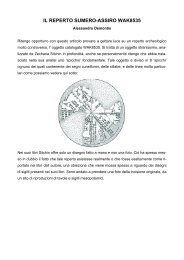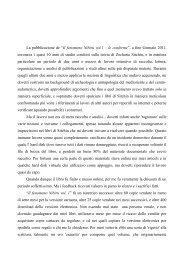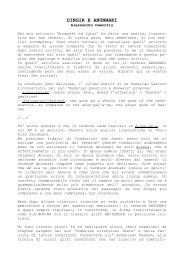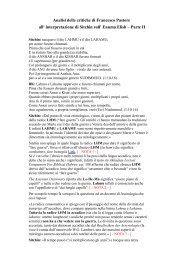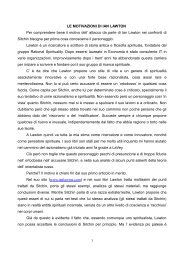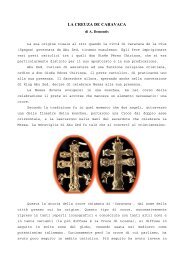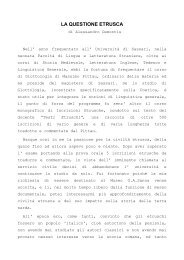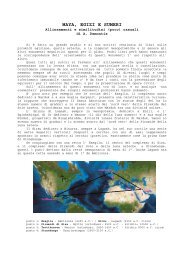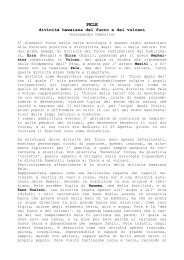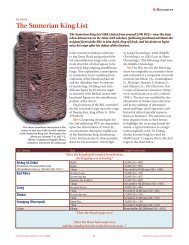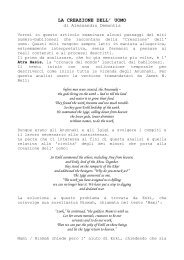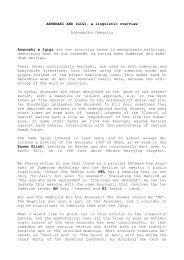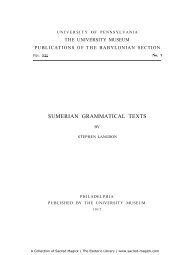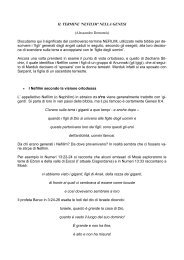Elementary Sumerian Glossary
Elementary Sumerian Glossary
Elementary Sumerian Glossary
You also want an ePaper? Increase the reach of your titles
YUMPU automatically turns print PDFs into web optimized ePapers that Google loves.
máš-anše herd, (wild) animals<br />
máš-ĝi6(-k), maš-ĝi6 ominous dream (lit. "kid of the<br />
night")<br />
máš-saĝ bellwether, leader<br />
máš-šu-gíd(-gíd) haruspex, diviner<br />
maškim commissioner, deputy, inspector, bailiff<br />
me divine power, attribute, office<br />
me silence, dumbness, daze<br />
me, -m to be (copula)<br />
me- where, in the phrases me-a where(in), me-ta/da<br />
wherefrom, whence, me-šè whereto, whither<br />
me-dím bodily members, features<br />
me-lám divine radiance, brilliance, splendor, aura, halo<br />
(now being read me-lem4, see Krecher, ZA 63 [1974]<br />
199, or me-lim4, see Attinger, NABU 2008 p. 104 )<br />
me-li-e-a Alas! Woe!<br />
me-te (var. ní-te) fitting, proper thing; ornament(?)<br />
(simtu) (Cunningham, Analysing Literary <strong>Sumerian</strong><br />
76f.)<br />
me-te - ĝál to be fitting<br />
me-te-na → ní-te-na<br />
me-téš/te-eš - i-i to praise, extol<br />
mè battle, war<br />
men, OS men4 (a kind of crown or turban)<br />
mes (strong, vigorous) youth, young man<br />
giš mes (a native tree/wood used to make furniture) (Van<br />
de Mieroop, BSA 6, 159f.) (mēsu)<br />
mi-ri → mir<br />
giš mi-rí-tum (a stringed instrument)<br />
mi-tum → giš mitum<br />
mí → munus<br />
mí - du11, mí-zi(-dè-eš) - du11 to treat carefully, gently;<br />
to take care of, provide for, cherish, nuture; to adorn,<br />
decorate; to flatter, praise, extol rightly (also with<br />
special verbal prefix i-ri-) (Attinger, Eléments 603-<br />
618)<br />
MÍ.ÚS.DAM → ĝitlam<br />
MÍ.ÚS.SÁ son-in-law, brother-in-law (Steinkeller,<br />
Third-Millennium Texts 37-38; Sjöberg, AV<br />
Falkenstein 221-225.) Now often read mussa (PSD) or<br />
mussa sá . Cf. nì-MÍ.ÚS.SÁ<br />
MÍ.ÚS.SÁ-tur son-in-law (Sjöberg, AV Falkenstein<br />
225f.)<br />
MÍ.ÚS.SÁ mušen pelican or crane(?) (read gambi ?)<br />
(Veldhuis, Education 242-243)<br />
mìn, min two (Edzard, AV Klein 100)<br />
mìn-na-ne-ne, mìn-a-bi the two of them, both of them<br />
mir, mi-ri, me-ri v. to be enraged; n. rage; adj. raging<br />
im mir, im mer → im-mir, tum9-mir<br />
giš mitum(TUKUL.AN), mi-tum divine weapon, mace<br />
(also read mitta or midda; cf. mítum(TUKUL. BAD)<br />
and other similar writings) (miţţu)<br />
mu name, fame; year; line (of writing)<br />
mu NOUN-ak-šè, mu-PRONOUN-šè because of, in<br />
place of, someone or something<br />
mu-gub(-ba) assigned lines, writing exercise, model<br />
tablet<br />
mu-im-ma (in the) previous year (wr. im-ma in OS)<br />
mu-lu (Emesal form of lú)<br />
mu - pà(d) to reveal, call the name, invoke, name<br />
someone (cf. mu lugal(-la) - pà(d) to swear by the<br />
king's name) (Sallaberger, AV Sigrist 159ff.)<br />
mu(-šè) - sa4 to name, call as a name<br />
37



